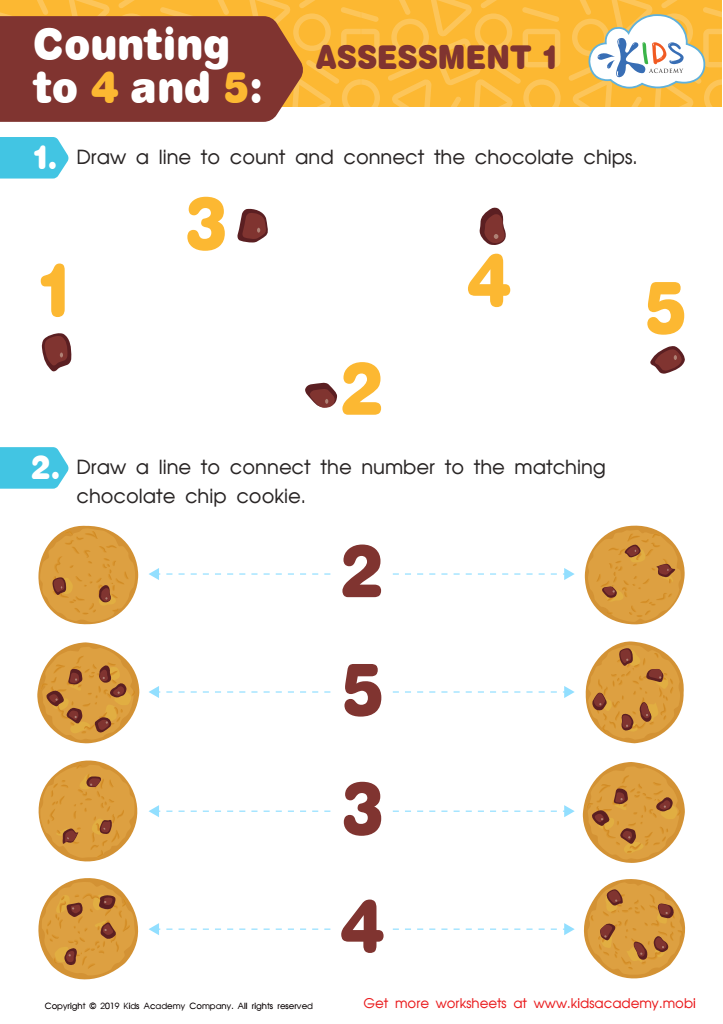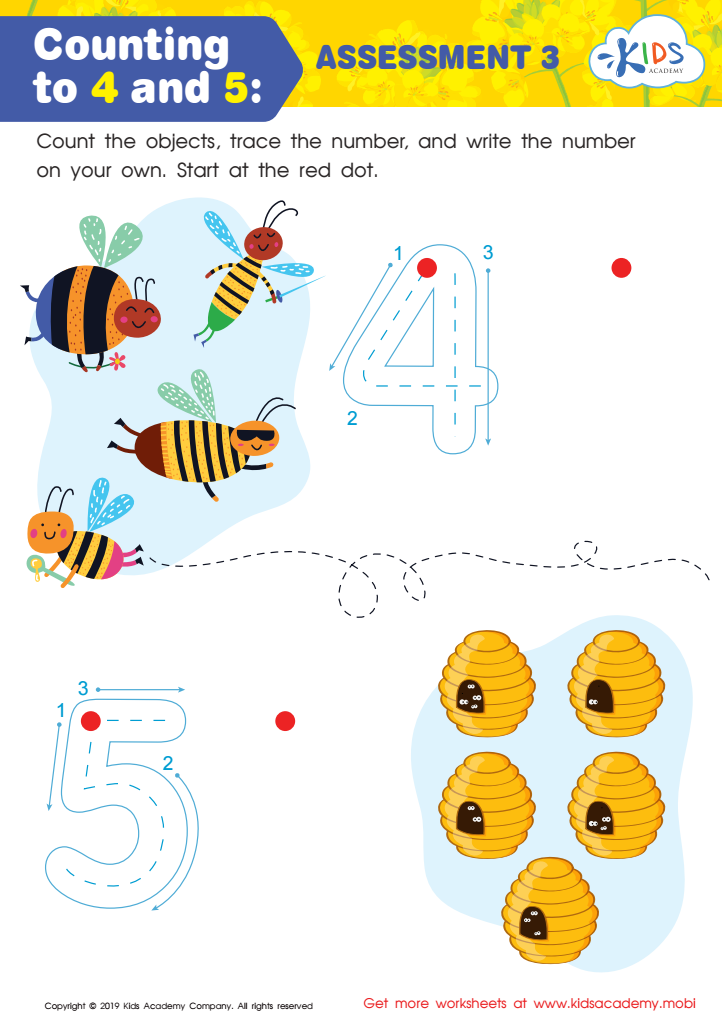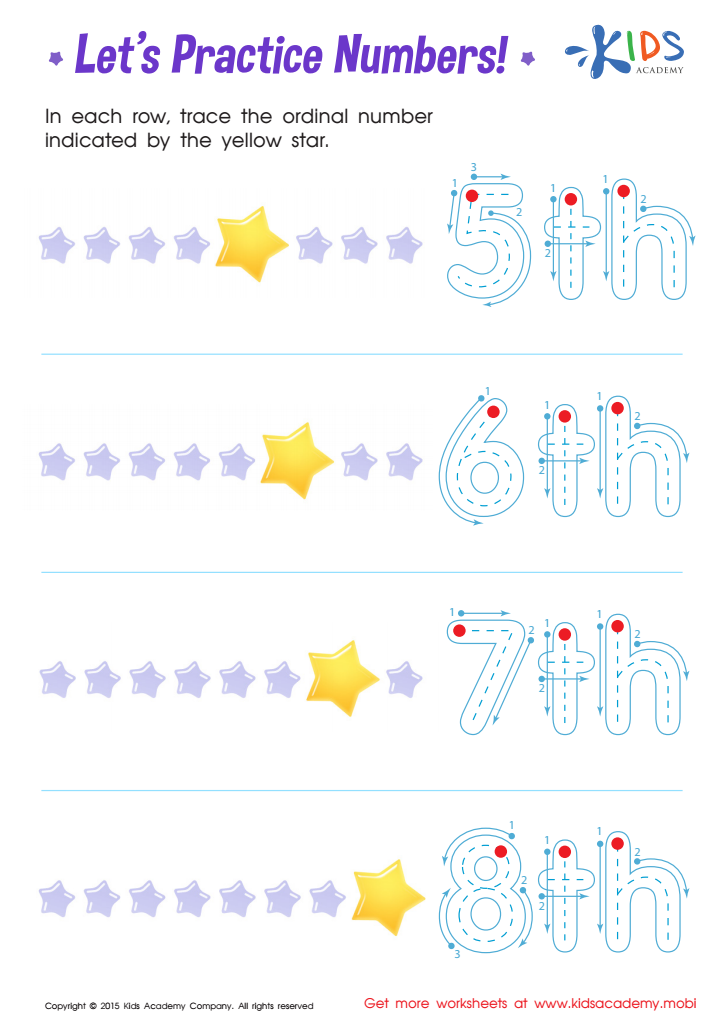Basic Addition Tracing Numbers Worksheets for Ages 6-8
3 filtered results
-
From - To
Kickstart your child's math journey with our engaging Basic Addition Tracing Numbers Worksheets for ages 6-8! Perfectly designed to build fundamental skills, these worksheets combine number tracing and simple addition to create a unique learning experience. Each page helps young learners improve their number formation, fine motor skills, and addition abilities through fun, hands-on practice. Ideal for classroom or home use, our worksheets provide the perfect balance of challenge and enjoyment, ensuring kids remain motivated and confident in their math abilities. Download today and watch your child’s basic addition skills flourish!


Counting to 4 and 5: Assessment 1 Worksheet


Counting to 4 and 5: Assessment 3 Worksheet
Basic Addition Tracing Numbers is crucial for ages 6-8 because this developmental stage is a foundational period for building core mathematical skills. For parents and teachers, understanding its importance sets the stage for lifelong numerical proficiency, an essential skill in everyday life.
Firstly, incorporating tracing exercises helps children develop fine motor skills and hand-eye coordination. These are essential for accurate writing, not just in math, but across all subjects. These skills also reinforce the correct formation of numbers, instilling good writing habits early on.
Secondly, combining tracing with basic addition reinforces the connection between visual and cognitive learning processes. As children trace numbers, they not only memorize their shape but also begin to understand their values and relationships. This dual approach makes learning more interactive and engaging, fostering an enjoyment of mathematics.
Moreover, solidifying these skills through structured addition tracing exercises helps to build confidence. Success with basic arithmetic operations can boost a child’s self-esteem, inspiring a positive attitude toward more complex mathematical concepts in the future.
Parents and teachers should care about Basic Addition Tracing Numbers because it integrates motor skill development with cognitive learning, fundamentally shaping a child’s future academic performance and creating a more holistic educational experience.

 Assign to My Students
Assign to My Students

















